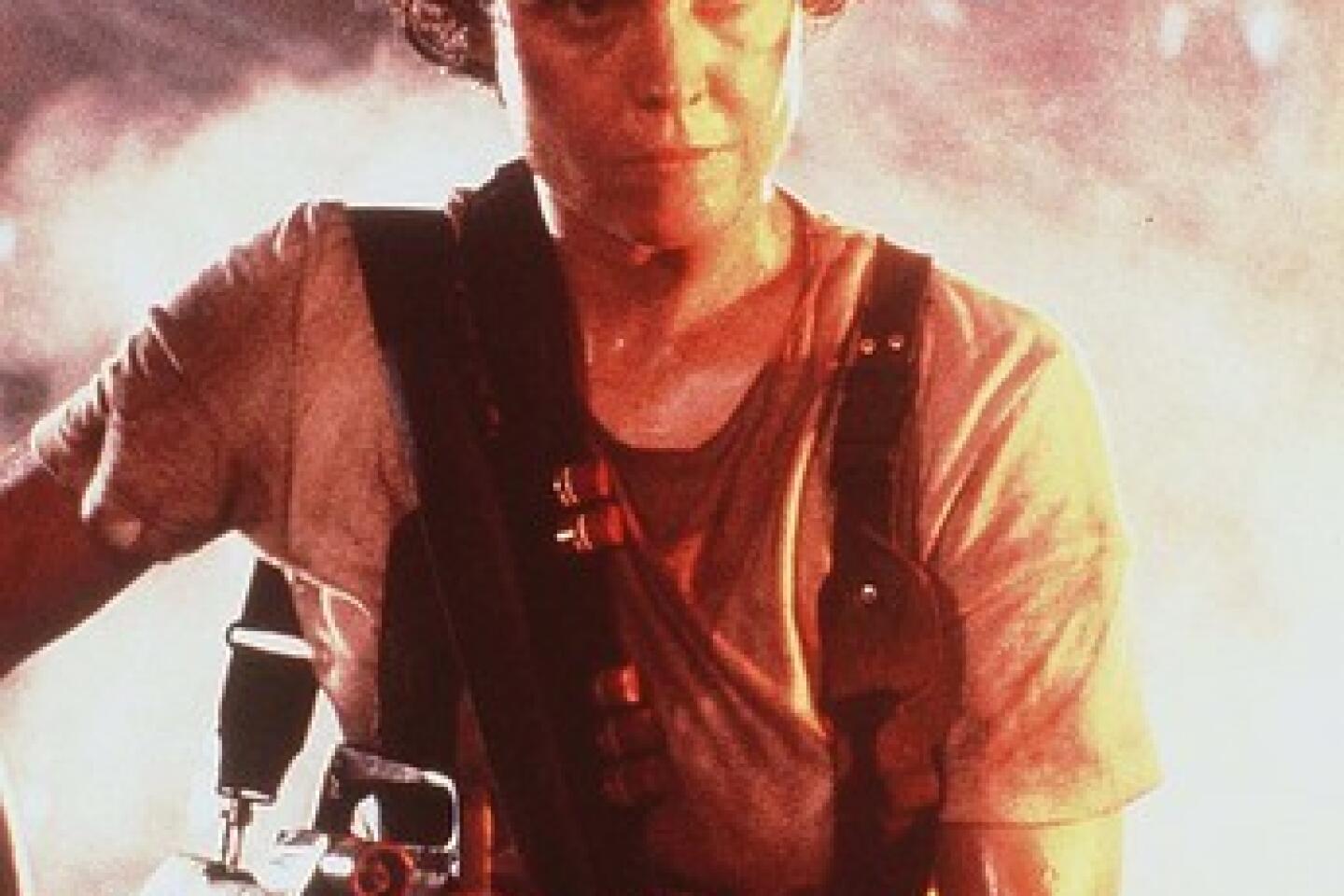Hollywood gets a kick out of ‘rebooting’
- Share via
When Sony Pictures’ plan for a fourth “Spider-Man” movie starring Tobey Maguire fell apart in January, the studio had to come up with a new way to keep the superhero series alive after three movies released from 2002 to 2007 grossed $2.5 billion worldwide.
Its solution: Start over.
Like many others in Hollywood seeking to breathe new life into an established movie franchise, Sony decided to “reboot.”
FOR THE RECORD:
In an article published Sept. 10 about Hollywood’s efforts to breathe new life into established movie franchises, Matt Tolmach and Doug Belgrad were called co-presidents of production for Sony Pictures. They are presidents of Columbia Pictures, a division of Sony Pictures. The article also said the movie “Let the Right One In” was Danish. It is Swedish.
First used in computer parlance, “rebooting” is, along with 3-D, Hollywood’s latest fad. If a sequel continues an original story, a prequel tells what happened earlier and a remake portrays the same events again, a reboot takes a franchise back to its origins and begins again with a different take — and cast.
The new “Spider-Man” film, scheduled for 2012, is expected to focus more on the personal life of teenager-turned-web-crawler Peter Parker than did the 2002 original. The 35-year-old Maguire will be replaced by little-known British-raised actor Andrew Garfield, 27.
“Reboot is a word that lets you have your cake and eat it too,” said Erik Feig, president of production for Summit Entertainment, which is rebooting the science-fiction series “Highlander.” “You get to make a movie that has brand awareness, but you’re not slavishly tied to what was done before.”
However trendy they may be, reboots have far-reaching financial and artistic implications. Studios use them to hold down escalating costs, keep popular franchises going when a traditional follow-up isn’t possible, or take one with a shrinking core audience and rework it for a broader crowd.
For those hoping to see more original stories on screen, however, reboot-mania is a discouraging example of creative poverty in the movie business. Most big-budget event films are already sequels or are based on popular existing properties, be they books such as “ Harry Potter,” video games such as “Prince of Persia” or toys such as the upcoming “Battleship.” But with the option to reboot, studio executives don’t even need to look for new material to adapt.
“The obsession with brand names is getting ridiculous and now feeding off itself,” said Mark Steven Johnson, the writer and director of “Daredevil,” the 2003 film that is being developed as a reboot. “We made ‘Daredevil’ because people knew it from the comic books, and now it’s seen as a title worth rebooting.”
The reboot trend has been building steam for a while. “Batman Begins” presented a new origin for a well-known character in 2005, as did the 2006 James Bond movie “Casino Royale.” Last year’s “Star Trek” proved it can work for a franchise that many thought was dead.
Now development slates at most major studios are packed with reboots. They range from hugely successful films such as “Spider-Man” to flops such as
“The Haunted Mansion” at Walt Disney Studios. They include pictures made in the last decade — such as
Warner Bros.’ ” Superman” and 20th Century Fox’s “Fantastic Four” — and older films like the 1990 “Total Recall” from Sony, 1986’s “Highlander” at Summit Entertainment and even the 1939 MGM classic “The Wizard of Oz” at Warner Bros. A new version of the 1968 film “Planet of the Apes” is going into production at Fox just nine years after another by director Tim Burton — call it a reboot of a reboot.
Some say that “reboot” might just be a flavor-of-the-moment in Hollywood, where agents, producers and executives love to chase whatever’s hot.
“‘Reboot’ has entered the Hollywood lexicon now, and everybody uses it to mean a re-imagining,” said Matt Tolmach, Sony’s co-president of production.
“I think reboots can work when they’re filmmaker-driven,” said “Hellboy” and “Pan’s Labyrinth” director Guillermo del Toro, who’s developing a reboot of the 2003 Eddie Murphy misfire “The Haunted Mansion.” “I’m a little suspicious when they’re marketing-driven.”
Economic concerns are at the heart of many reboots, however.
When it was trying to put together “ Spider-Man 4” with Maguire and director Sam Raimi, Sony was looking at potentially laying out more than the $250 million it spent to make “Spider-Man 3.” But with Garfield in the lead role, director Marc Webb at the helm and fewer special effects, the studio is rebooting the budget as well. It expects to spend less than $100 million.
“In success everybody gets paid more, but at some point you reach an upper limit where it doesn’t make sense anymore,” said Doug Belgrad, Sony’s co-president of production. “With a reboot, the cost structure changes.”
Some might be tempted to think that reboots mark the final evolution in Hollywood’s brand obsession.
Once the most popular movies have been rebooted, after all, what’s left except fresh material? But studios are avoiding that fate by shortening the amount of time during which they leave franchises on ice.
“When you’re not taking many opportunities with original material, the cycle for using older stuff gets faster,” said Tim Story, who directed the 2005 film “Fantastic Four” and its 2007 sequel but isn’t involved in the reboot. “You would think it would take ‘Fantastic Four’ at least 10 years to come back around, but it may end up being less than five.”
For all the commercial benefits reboots bring to studios, it’s filmmakers who are most directly confronting their potential pitfalls.
Screenwriter Josh Olson, who is rebooting one of the most beloved movie properties of all time with his script “Oz,” said his job is one of careful balance. “You want to write something that takes people back to the fondness they had for the original, but you can’t just try to duplicate it,” he said. “I’m aware of the fact that there are a couple million people who will come to your house and burn it down if you don’t get it right.”
Perhaps the biggest risk, however, is for reboots of pictures that were released recently to great success.
“The more recently something was done and the more successful it was, the greater the challenges,” said director Matt Reeves, who helmed the upcoming English-language remake of Danish vampire thriller “ Let the Right One In.” “I’d be very daunted if I was doing the ‘Spider-Man’ reboot.”
More to Read
Inside the business of entertainment
The Wide Shot brings you news, analysis and insights on everything from streaming wars to production — and what it all means for the future.
You may occasionally receive promotional content from the Los Angeles Times.













